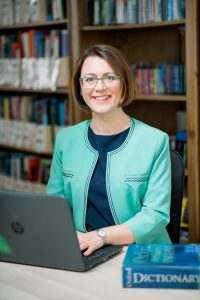Rakesh Bhanot explores the benefits of teaching in picturesque Slovakia
Thinking of teaching English in a picturesque city in Central or Eastern Europe? Consider Bratislava, the capital of Slovakia, situated just a short way down Strauss’ ‘Blue Danube’ from Vienna. The city has as rich a history as any of the more well-known cities in central Europe. In fact, from 1536, it was the capital of the Kingdom of Hungary for over 200 years. Today, about 10 per cent of the population are ethnic Hungarians.
Since the ‘velvet divorce’ from the Czech Republic in 1993, and subsequent joining of the EU in 2004, Slovakia has developed an advanced and fast-growing economy with a very high Human Development Index.
Many IT and multinational companies are now based in what has been described as ‘a small big city’ with a population of just over half a million, and there is a huge demand for learning English.
Following the dissolution of the Soviet Union in 1991, Slovakia’s citizens have made the switch from having to learn Russian to wanting to learn English. Moreover, parents are very keen for their children, even pre- school age children, to learn English, and there are numerous private language schools and institutions. These vary from large scale operations in central Bratislava, to much smaller outfits in small towns with one or two teachers.
There are also a number of English- medium international schools in or near Bratislava. See www.welcometobratislava.eu for a list of most of the language schools in the capital city. The www.profesia.sk website is also worth looking at for all sorts of openings; not just teaching posts.
Qualifications needed
Many small language schools will employ ‘unqualified native transients’ (aka backpackers), particularly in less urban areas. The more prestigious private language schools in the bigger towns and cities, however, require international certificates (CELTA or TESOL) for teaching English.
Permanent positions are rare and are usually only for teachers at state schools or universities. Also, many universities have laid off nearly all of their part-time teaching staff due to Covid-19. State schools may be happy to employ teachers with only a first degree, but universities will probably insist (at a minimum) on an MA, and most likely a PhD, and you may be required to show evidence of peer-reviewed publications. However, university lecturers teach fewer hours than those who work in state schools or private language schools.
Professional Development
CPD and training varies, so it is worth checking before you take up a post. Some, such as The Bridge English Language Centre (see box opposite), also pay staff to attend summer camps run by internationally renowned experts in ELT.
The Slovak Chamber of English Language Teachers (SCELT) has been running national and regional conferences since 2015. The Bridge English Language Centre has also run an annual two-day ELT Forum for the last ten years.
“‘Small is beautiful’ seems to be a perfect epithet for this easy-going, peaceful country nestled in the heart of Europe.”
Learning Slovak
You can survive without learning Slovak, but your experience will be greatly enriched by setting aside some time to learn the language. And, of course, it helps you to understand the kind of problems Slovak learners have when they are learning English. If you want to learn Slovak and get to know the local culture, a small town could be the ideal place.
Travel
Commuting within Bratislava or even outside the capital is completely different from other cities. You can make most journeys on a bike or on foot. You do not need to own or rent a car, and trains and buses are relatively cheap. Moreover, Bratislava is close to other European cities, and it is less than an hour from Vienna airport.
One of the greatest perks of working in Slovakia is the countryside. It is claimed that the country has the highest percentage of woodland in Europe, and it offers all sorts of possibilities for trekking, cycling and other outdoor activities.
Work permits
Most teachers of English work as freelancers, but need to obtain a work permit. This can be arranged at the Foreign Police Department. The process requires numerous visits to the relevant offices. Most good schools and employers will provide help with this, but be prepared for (what a colleague described as) Kafkaesque bureaucracy, particularly for non-EU nationals, and you will need to have cash in your bank account. In some cases, you may have to apply before you arrive, so check first.
Salaries
There is a stark difference between salaries in Bratislava and in the rest of Slovakia. As a rule, a native-speaker teacher with qualifications and experience can earn up to around 1,600 Euros per month in Bratislava. The salaries in private language schools vary from 14-20 Euros per sixty-minute lesson, and most teachers work about
20–25 hours per week. Without qualifications, and in smaller towns, the salaries would be considerably lower, but you may find it easier to get a job without teaching qualifications.
Cost of living
Salaries in Slovakia may be rather low, but because the cost of living is also relatively low, it is possible to enjoy a comfortable lifestyle, even in Bratislava. The centre of Bratislava is pricey because it is popular with tourists, but a few bus or tram stops from the city centre the situation is different.
Cheap food and drinks are definitely part of the attraction of living in Slovakia. Accommodation is also relatively cheap even in the centre of Bratislava, and a few kilometres away it is definitely affordable. Bratislava boasts a lively night life where, in addition to very quaffable and cheap wine, you can find bars with live music and singers offering everything from jazz to country blues.
Finally
Without slipping into stereotypes, the people in Slovakia are very friendly, and most young people in the big cities speak some English. There may not be a mad rush of teachers wanting to go to Slovakia, so teaching positions might be easier to come by.
What I have also noticed is that those who go tend to stay; or, at least, stay longer than they had planned to. ‘Small is beautiful’ seems to be a perfect epithet for this easy- going, peaceful country nestled in the heart of Europe. Na zdravie!
I should like to thank Lynda Steyne, Jacob Roseman, Mark Andrews and the staff at The Bridge English Language Centre for their help in writing this article.
The Bridge strikes a balance in Bratislava
Klaudia Bednarova talks to Rakesh about EAQUALS qualification
In August 2020, The Bridge English Language Centre in Bratislava, Slovakia, became the first language school in the country to be accredited by EAQUALS, an independent, international non-profit membership association set up to serve the interests of language learners and the language education profession worldwide. I asked Klaudia Bednarova, the owner/director, how she went about gaining this prestigious status.
What made you apply for EAQUALS accreditation?
We wanted to be part of a network that we can learn from. EAQUALS did that for us. We saw the application process as a rich learning experience and spent two, maybe three, years preparing. By working as a team through the self-assessment questionnaire, we were able to update and to improve our systems and approaches, as well as to implement new standards and structures. We learned about benchmarks, guidelines and clarified our goals and direction.
It was a really useful, and professionally rewarding, experience. For me as director, and I hope I can talk on behalf of the rest of the team (both admin and teaching), it was challenging but also motivating at the same time.
What were some of the challenges?
It was challenging to set up more formal quality control mechanisms which would define the standards we wanted to achieve and maintain, but without limiting teachers in their day-to-day work. The aim was to design
systems that would create the right balance between allowing teachers do what they want and making sure we keep consistently high standards across the school.
What makes your school ‘special’?
In one word: people. I’m very happy, and lucky, to be working with the people in my team. I like them, and I respect them… they are fun to be around! In addition, I’m glad to have a variety of friends and colleagues in ELT based in many countries who regularly contribute, formally and informally, to our school’s development and also to the CPD programme as external trainers and mentors. I believe that networking and talking to people who are better than us is the key element of improvement. We work hard, but it’s not the amount of work we do that counts; it’s the result of our work that matters.
You have a truly international team. Was this by design or did it just happen?
English is spoken all over the world, and I want my staff to reflect this. So, I guess partly by design. We do want and need to be diverse as we have a diverse group of students. The teacher-student relationship, besides being professional, needs to be human. People need to like each other in order to have effective learning, and we do our best to have the studentsˈ learning as the centre of our attention. Incidentally, our current team comprises colleagues from nine countries including Slovakia, India, Germany, Serbia, US, UK, Ukraine, Argentina and Brazil.
What advice would you give to other language school owners in Slovakia?
Invest into your human resources from as wide a range as possible. As managers and school owners, we have to start with the people. We need to get them onside, provide effective training, and build genuine mutually supportive dialogue as only together we can achieve the higher standards we aspire to.
What was the impact of Covid-19, and how did you and your team adapt to the ‘new normal’?
We switched over 500 courses to online within a week of lockdown. By Monday 16 March, we were fully online and overall, we have managed to retain over 70% of our business during the Covid-19 period.
I strongly believe that it is our on-going CPD programme and consistent support for our teachers that make the difference in terms of the quality of our teaching. Our classes are an investment for the company, and not just a perk of the job. Developing our teachers is, I believe, why we successfully transferred and retained the majority of our clients/students during this crisis.

Klaudia Bednarova founded The Bridge English Language Centre in 2009. She is one of the founding members of the Slovak Chamber of English Language Teachers and the Slovak Association of Language Schools (SALS). She is currently chair of the Slovak Chamber of English Language Teachers and was chair of SALS from 2011 to 2016.





